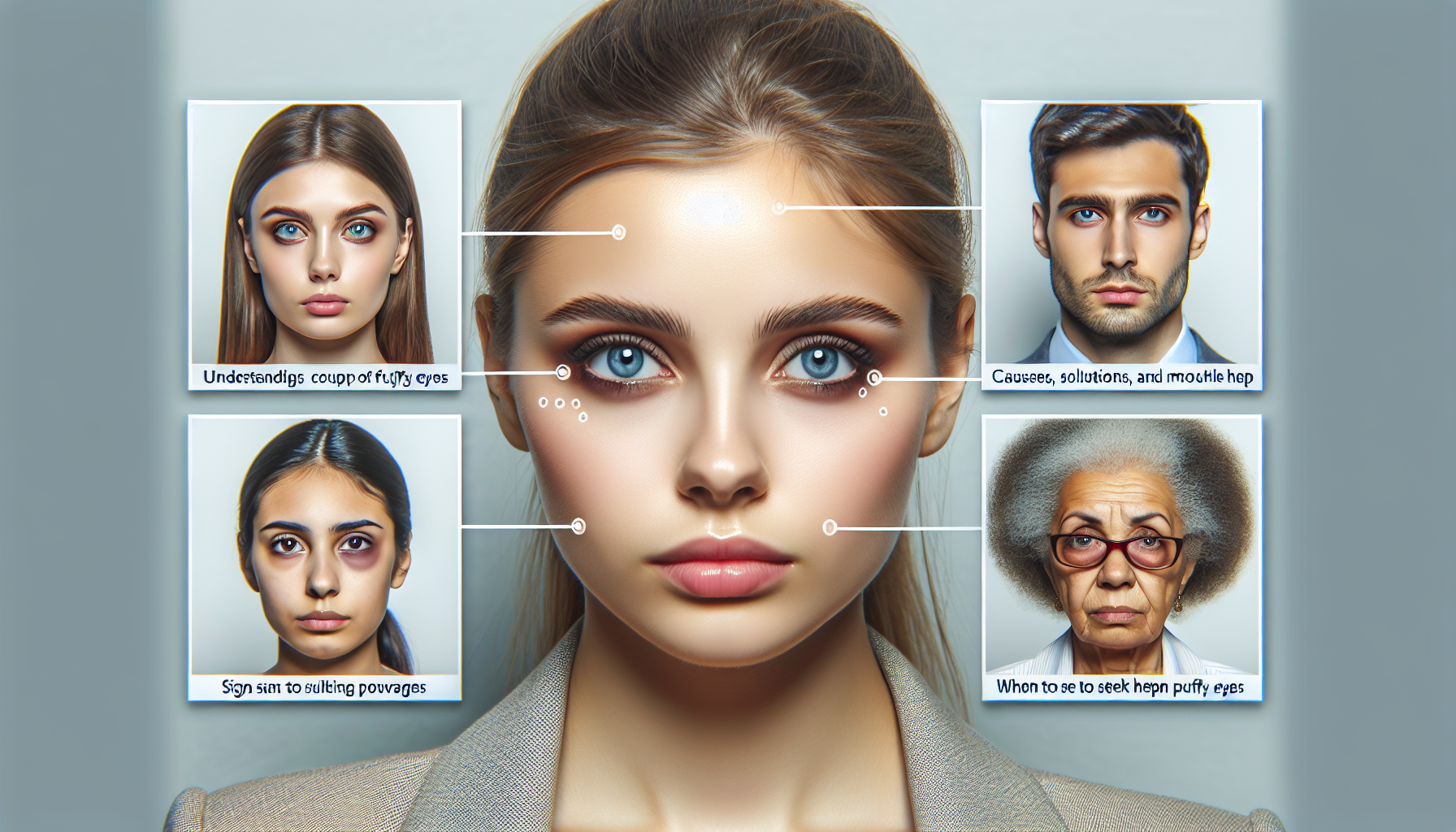The Morning After: Understanding Puffy Eyes and How to Address Them
Have you ever woken up after a deep sleep, only to find your eyes swollen and your eyelids unusually heavy? Whether it's from a good cry, a big yawn, or simply the stresses of daily life, puffy eyes are a surprisingly common occurrence. More than just an inconvenience, persistent puffiness around the eyes can sometimes indicate underlying health issues. Let’s explore the various reasons behind this phenomenon and what you can do about it.
1. Sleep Deprivation: The Silent Culprit
Ever wondered why your eyes look puffy even after a short nap? Sleep deprivation might be the answer. According to Dr. Anar Mikailov, dermatologist and co-founder of Skintensive, lack of sleep leads to an increase in certain hormones that cause fluid retention. Moreover, reduced lymphatic fluid implies fewer resources to remove toxins, leading to puffiness. Ensuring a good night's sleep allows your body to efficiently remove daily waste, reducing the risk of puffiness and improving overall health.
2. The Hidden Effect of Sleep Posture
It's not just about how long you sleep, but also how you sleep. Lying face-down can cause fluid to gather around your eyes. Dr. Mikailov explains that sleeping flat can lead to gravitational fluid shift around the eyes. By slightly elevating your head with an extra pillow, you can use gravity to your advantage and reduce puffiness.
3. Hormonal Changes: Nature's Subtle Way
For those who menstruate, hormonal fluctuations can contribute to puffiness before your menstrual cycle. Dr. Mikailov notes that increased progesterone levels during this phase cause fluid retention, especially around the eyes, leading to visible swelling.
4. Allergy Season: Eyes at the Frontline
Seasonal allergies often bring itchy, swollen eyes as part of their symptom package. If your eyes swell with the first blooms of spring, you're not alone. Dr. Mikailov points out that an increase in histamine release leads to inflammation and puffiness, typically around the face.
5. The Irony of Dehydration
While it seems contradictory, dehydration can lead to fluid retention as your body holds onto precious water, resulting in puffiness over time. This paradoxical response highlights the importance of maintaining adequate hydration daily.
6. Tears of Emotion: A Swelling Trigger
Emotional tears can also cause swelling around the eyes. According to Dr. Mikailov, crying leads to tissues around the eyes reabsorbing tears, causing puffiness. Dermatologist Dr. Marisa Garshick adds that wiping tears too vigorously can irritate the eyelids and exacerbate swelling.
7. Alcohol: A Swelling Inducer
Dr. Rebecca Marcus, dermatologist and founder of MaeiMD, highlights that alcohol can lead to water retention, making your face appear puffier. This swelling can last into the late morning or even noon, influenced partially by alcohol's interference with sleep quality and inflammatory effects.
8. Sodium’s Role in Retention
High sodium intake can dry out your skin and lead your body to retain more fluid. Dr. Mikailov suggests reducing salty foods if you’re concerned about puffiness. Remember, processed foods often contain hidden sodium, leading to more intake than you might think, warns Dr. Apple Bodemer, board-certified dermatologist.
9. The Inevitability of Aging
As much as we’d like to avoid it, aging can play a role in eye puffiness. The natural loss of collagen and elastin results in less structural support around the eyes, making puffiness more noticeable as the skin thins with age, says Dr. Mikailov.
10. Thyroid Issues: When to Seek Help
Persistent and severe puffiness may warrant a conversation with your doctor. Dr. Mikailov suggests that conditions like thyroid disease can cause ongoing swelling, so it’s important to monitor changes and consult a professional if needed.
11. Genetics: The Unchangeable Factor
Sometimes, puffy eyes are simply part of your genetic makeup. While some find relief through medical procedures, most find themselves managing this trait through lifestyle adjustments. Awareness and preventive measures can help mitigate worsening with age.
Whether it's tweaking your sleep habits or adjusting your diet, understanding the underlying causes of puffy eyes can be the first step towards addressing them effectively. Stay informed, and don’t hesitate to seek professional advice if needed. After all, our eyes are more than just windows to the soul—they’re also windows to our health.
